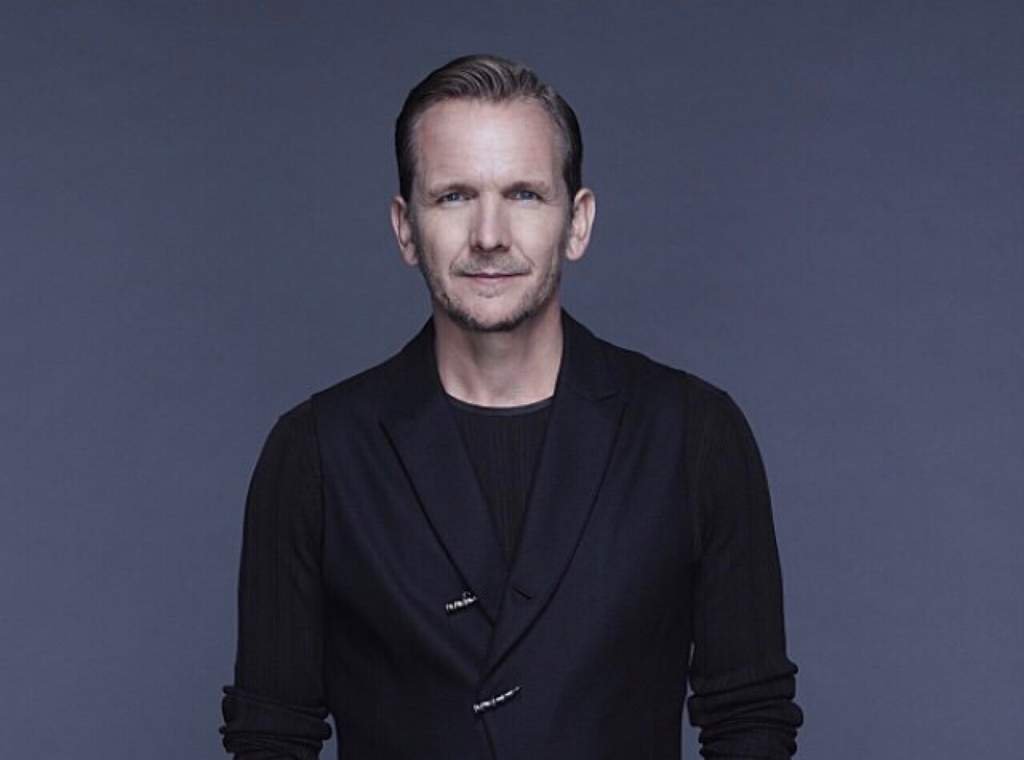Uncovering The **Mikael Meaning**: Origins, History, And What It Really Says
Detail Author:
- Name : Mylene Pouros
- Username : gina05
- Email : kessler.michel@muller.info
- Birthdate : 1972-08-10
- Address : 95916 Huels Shoal Suite 006 Cecilestad, DC 93995-9505
- Phone : (781) 520-8601
- Company : Wyman-Fritsch
- Job : Precision Printing Worker
- Bio : Et dolor pariatur sequi exercitationem. Sed voluptatum eum rerum et non sequi ducimus architecto. Laborum exercitationem sit vero magni.
Socials
facebook:
- url : https://facebook.com/erdmanm
- username : erdmanm
- bio : Nulla sapiente officiis dolor sapiente commodi nostrum.
- followers : 5622
- following : 346
tiktok:
- url : https://tiktok.com/@merdman
- username : merdman
- bio : Vitae nobis et fuga et tempore id exercitationem.
- followers : 2400
- following : 1205
Have you ever stopped to ponder the deep story held within a name? Perhaps you are considering names for a little one, or maybe you just feel curious about the meanings behind familiar words. Today, we are going to explore the name Mikael, a rather interesting choice with a very rich background. It's almost as if names carry whispers of history, don't you think?
This particular name, Mikael, holds a profound significance that reaches across different cultures and time periods. It is not just a collection of letters; it is a connection to ancient roots and a symbol of powerful ideas. So, if you have ever wondered about the true essence of this name, you are certainly in the right spot.
We will look at its deep origins, its fascinating variations across the globe, and even its place in modern stories. You might be surprised by just how much a single name can tell us, and what kind of journey it has taken through the ages. Let's really get into what makes the name Mikael so special, shall we?
Table of Contents
- The Core Meaning of Mikael
- Geographical Reach and Popularity
- Mikael in Fiction: The Original Vampire
- Cultural and Religious Connections
- Mikael in Modern Times and Community
- Frequently Asked Questions About the Name Mikael
The Core Meaning of Mikael
The name Mikael is a masculine given name, and it is basically a variant of the Hebrew name Michael. This Hebrew name, written as מִיכָאֵל, carries a very powerful question within its letters. It means, quite simply, "who is like God?" This question, you know, is not meant to be answered with a specific person. Instead, it is a rhetorical query that suggests no one can truly compare to the divine. So, in some respects, it is a name that really points to humility and reverence.
This profound meaning is at the very heart of the name Mikael. It is a name that, in a way, carries a strong religious connotation. It symbolizes, perhaps, a deep spiritual connection or a recognition of a higher power. It's a name that has been passed down through generations, still carrying this significant question and the feeling of awe that comes with it. The name, you see, is derived directly from these ancient Hebrew roots, giving it a very old and respected lineage.
Geographical Reach and Popularity
Mikael, as a name, is used predominantly throughout Scandinavia and Finland. It is, in fact, a Scandinavian, Finnish, and Breton form of Michael. This means that while its roots are Hebrew, it has truly found a home and become quite common in these northern European countries. You will find it, for example, in many families across these regions, a very familiar sound.
Interestingly, this variation of Michael is also very popular in Iceland and Puerto Rico. That's a rather wide spread for a name, isn't it? It shows how names can travel and become cherished in places far from their original linguistic homes. However, it has only made the cut for the US top 1000 two times, which means it is not as common in the United States compared to some other names. It's a bit more unique there, perhaps.
The name Mikael is largely used in the Finnish and Scandinavian languages, and it is still derived from Hebrew origins. It is also seen as a variant transcription of the name Michael in other languages, such as Czech, English, and French, among others. This widespread use, you know, shows its adaptability and how it has been embraced by different cultures, even if its popularity varies from one place to another.
Mikael in Fiction: The Original Vampire
Beyond its meaning as a name, Mikael is also recognized as a significant character in popular culture. In certain stories, Mikael is portrayed as an original vampire. He is, quite famously, a formidable vampire hunter, which is a rather striking contradiction for a vampire, isn't it? This character, so, adds a layer of intrigue to the name, connecting it with themes of strength and conflict.
This Mikael character, originally a Viking warrior and an affluent landowner, married a witch named Esther in the kingdom of Norway. He was the biological father of Freya, Finn, Elijah, Kol, Rebekah, and Henrik. He was also the stepfather of Klaus, which is a very important detail in the story. This character's history is quite extensive, adding a rich narrative to the name itself. He also became a werewolf at one point, further complicating his already very complex nature.
Biographical Details of the Character Mikael
Here are some details about the character known as Mikael from popular fiction:
| Role | Original Vampire, Vampire Hunter |
| Origin | Viking Warrior, Affluent Landowner from Norway |
| Spouse | Esther (a witch) |
| Biological Children | Freya, Finn, Elijah, Kol, Rebekah, Henrik |
| Stepchild | Klaus |
| Additional Traits | Became a werewolf |
Cultural and Religious Connections
The name Mikael, as we have seen, carries a strong religious connotation. Its Hebrew origin, meaning "who is like God?", inherently links it to spiritual themes and beliefs. This connection is not just a linguistic quirk; it is a profound symbol. It really represents, in a way, a recognition of divine greatness and a sense of humility before it. This symbolism has been a part of the name for centuries, you know, influencing how it is perceived and used.
The name Mikael is a boy's given name used in Irish, Scandinavian, Finnish, and Breton cultures. All of these uses, interestingly enough, contain a Hebrew origin. It's almost like a thread connecting diverse cultures back to a common, very ancient source. This widespread adoption across different linguistic groups, yet retaining its core meaning, is quite remarkable. It shows how deeply resonant the meaning "who is like God?" has been for many people.
The name is often seen as a diminutive of the Hebrew name Michael, which still carries that powerful meaning. It is a name that has been carried by figures of significance in various religious texts, and that, too, adds to its weight and respect. When someone is named Mikael, they are, in a sense, carrying a piece of this long and very meaningful history. It is a name that, basically, invites contemplation about one's place in the larger scheme of things.
Mikael in Modern Times and Community
In contemporary times, the name Mikael continues to be used, appearing in various contexts beyond just personal identification. For instance, you might encounter it in online communities. We see a rather heartwarming example from "Mikael TubeHD" where a family expresses their greetings and hopes to entertain their audience. This shows, you know, how the name is used to build connections and community in the modern world.
This kind of usage highlights the human element behind names. It's not just about ancient meanings; it's about how people embrace and use names today to create identities and foster relationships. The message, "Hai teman2.salam kenal dari kami keluarga besar mikael tubehd,,mohon dukungannya ya semoga kami bisa menghibur teman2 semua🙏," is a very clear example of this. It shows a desire for connection and support, using the name as a point of reference for a group or family. It's a bit like a friendly wave, isn't it?
The name Mikael, therefore, is not just a relic of the past; it is a living name that continues to find its place in new and evolving ways. Whether it is used in a traditional sense or as part of a modern online presence, its presence is felt. It suggests that while the historical meaning is important, the name also adapts and gains new layers of significance through its use by real people. You can learn more about various name origins and their contemporary uses by exploring resources like a reputable name meaning site, for instance.
So, we see how Mikael is a name of Scandinavian origin, carrying profound significance. It is a Scandinavian, Finnish, and Breton form of Michael, which derives from the Hebrew name. This makes it a truly international name, even if its popularity shifts from one country to another. It's really quite interesting to see how a name can span so many different cultures and still hold its core identity. Perhaps you would like to learn more about popular Scandinavian names on our site, or even explore other Hebrew name meanings to see how they compare.
Frequently Asked Questions About the Name Mikael
What is the basic meaning of the name Mikael?
The name Mikael basically means "who is like God?" It is a rhetorical question derived from its Hebrew origin, Michael. This meaning, you know, carries a strong sense of reverence and humility, suggesting that no one can truly compare to the divine.
Where is the name Mikael most commonly used?
Mikael is predominantly used throughout Scandinavia and Finland. It is also very popular in Iceland and Puerto Rico. While it has Hebrew roots, it has become a very common and cherished name in these specific regions, so you'll find it quite often there.
Is Mikael a variant of the name Michael?
Yes, Mikael is indeed a variant of the Hebrew name Michael. It is a Scandinavian, Finnish, and Breton form of Michael. It is also seen as a variant transcription in other languages like Czech, English, and French, maintaining the original meaning.

Mikael Persbrandt - Biography, Height & Life Story | Super Stars Bio

Här visar Mikael Persbrandt, 60, upp sin nya piercing | Hänt

Mikael | Wiki | Vampire diaries & Originals Amino